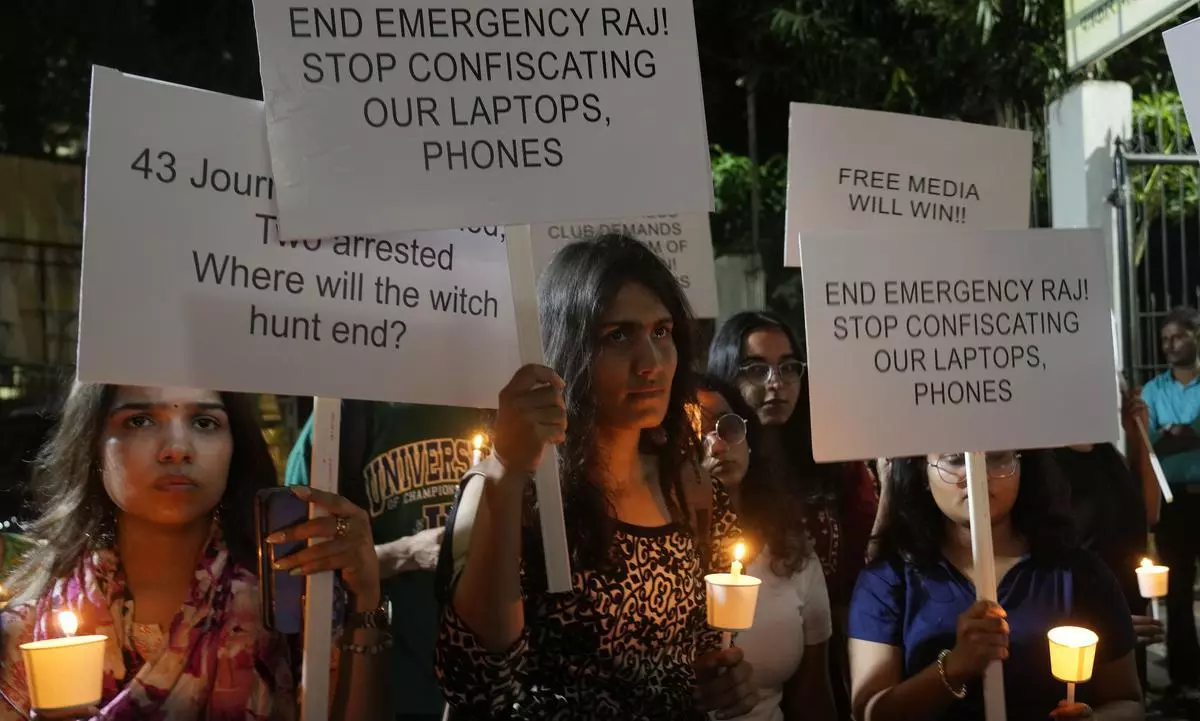
Supreme Court restrains ED from accessing electronic devices seized during raids
text_fieldsIn a landmark decision, the Supreme Court has barred the Enforcement Directorate (ED) from accessing and copying the contents of electronic devices seized during searches on the premises of Santiago Martin, widely referred to as the “lottery king.”
This order, which has significant implications for investigative practices, also stayed the ED's summons requiring individuals to appear for data extraction from their digital devices, The Indian Express reported.
The searches, conducted in November, spanned 22 locations across six states and resulted in the seizure of ₹12.41 crore in cash. The operation stemmed from a complaint by Meghalaya Police alleging that Future Gaming and Hotel Services Private Limited, owned by Santiago Martin, had illegally monopolised the lottery business in the state.
The company is known to have purchased ₹1,368 crore in electoral bonds between 2019 and 2024, with major beneficiaries including the Trinamool Congress, DMK, YSR Congress, and BJP.
A two-judge bench ordered that the case be heard alongside similar cases concerning electronic device seizures. These include petitions by Amazon India employees and individuals linked to Newsclick, all seeking clearer guidelines on the confiscation of digital devices by enforcement agencies.
The petitioners argued that accessing personal digital devices without safeguards infringes on constitutional rights, particularly the right to privacy, as such devices contain sensitive personal and professional information.
The Supreme Court's decision has brought into focus the absence of a detailed procedure governing the seizure and examination of digital evidence. Future Gaming's petition highlighted concerns over unrestricted seizures potentially leading to fishing expeditions or forced self-incrimination. It emphasised the deeply personal and revealing nature of information stored on digital devices, which may include financial records, medical data, and confidential business strategies.
Senior ED officials acknowledged the order’s unprecedented nature but dismissed it as a major setback. They noted that the agency had gathered other substantial evidence against Martin and his company. Recently, the ED attached properties worth ₹622 crore linked to the Future Gaming group as part of its investigations.
Future Gaming's legal representatives, including prominent lawyers, underscored the importance of protecting fundamental rights while ensuring that enforcement agencies do not misuse their powers. The petition, spanning 234 pages, listed 12 categories of devices seized, including mobile phones, hard drives, and backup email data. The company also highlighted its substantial contribution to the exchequer, stating that it had paid ₹28,205 crore in GST related to its lottery operations.
This decision is expected to set a precedent for similar cases, potentially prompting a review of investigative practices by agencies before confiscating digital devices. It also raises broader questions about balancing investigative needs with the protection of individual privacy and rights in an increasingly digital world.























